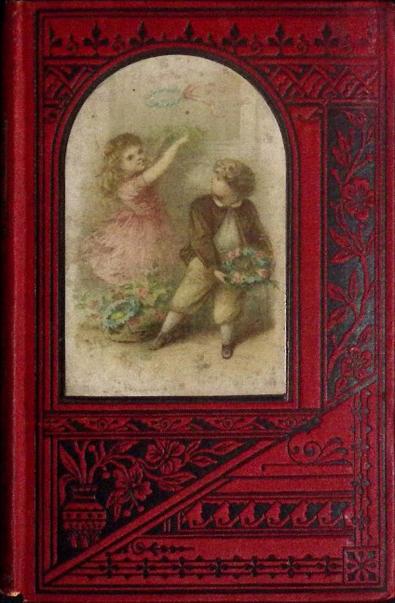
Chapter 10
Architecture
Instructor’s Manual
Overview
In this chapter introduce the art of architecture. Discuss architecture’s importance in our daily lives, from our homes to our work and play places. Encourage students to think of buildings they have experienced that are designed well.
Sub Headers
The Art of Architecture
The Architecture as Artist and Engineer: Planning
Harmony of Exterior and Interior Design
Harmony with Natural Setting
Art to be lived in
The Parthenon
The Greek Orders
Materials and Methods
Earth, Clay, Brick
Stone
Wood
Iron and Glass
Steel and Glass
Reinforced Concrete
Mixed Building Materials
Architecture is a Product of its Time and the Past
Saint Peter’s Monticello
Urban Planning
Contemporary Approaches
Terms adobe arcades barrel vaults bearing wall cage capitals
colonnade
computer-aided design elevations
ferroconcrete frame construction
groin vaults perspectives
piazza pointed arch post-and-lintel reinforced concrete round arch steel frame volutes
Lecture #1
Discussion:
In Lecture #1 discuss the importance of design in a building. Speak both to the creative elements of architecture and the engineering elements of architecture.
Class Questions/Prompts:
The Essential Art Form One of the basic human needs is shelter. Some theorists make distinctions between architecture and mere shelters. Are all buildings considered architecture? Is only architecture considered an art form? When are buildings considered an art form and when are buildings not considered an art form?
Exercise #1
1. Analysis
a. Have students make observations on materials, methods, cultural and historical context.
2. Compare and Contrast
Figure 10-11 Iktinos and Kallikrates, rear view of the Parthenon, Acropolis, Athens, Greece, 448-432 BC. Figure 10-3 FRANK GEHRY, Guggenheim Museum of Art, Bilbao, Spain, 1997.Lecture #2
Discussion:
In Lecture #2 discuss architectural building materials and methods. Follow the texts structure in exploring materials and methods. Use examples from life and images from the text.
Class Questions/Prompts:
Building Materials Identify the structural construction techniques that could be used in each of the following construction techniques: Earth/Clay/Brick, Stone, Wood, Iron and Glass, Steel and Glass, and Reinforced Concrete. Why are the construction techniques unique to the specific materials?
The Skyscraper The Builders: Marvels of Engineering states that the skyscraper had its origins in Chicago in the late 19th century, after the great Chicago fire. This was a result of the presence of great engineers, a good economy, and premium urban space. Some important early Chicago architects/skyscrapers are William Le Baron Jenney’s Leiter Building and Home Insurance Building, John Root’s Rand-McNally Building and Monadnock Building, the Tacoma Building by Holabird and Roche, and Louis Sullivan. These early buildings only had between 10 to 20 stories, small in today’s standards for skyscrapers and smaller than the Eiffel Tower, but very innovative, inspiring the high rises of today. The United States at one time was home to the tallest buildings in the world, including Chicago’s Sears Tower at 1,732 feet and the Empire State Building in New York City at 1,250 feet. Today, construction on the Burj Dubai will be completed in 2009, making it the tallest building at over 2,600 feet. What made the skyscraper possible? Discuss all the engineering developments that made it possible, including the elevator.
Exercise #1
1. Analysis
a. Have students make observations on materials, methods, cultural and historical context.
Figure 10-4 Dome of the Rock, Jerusalem, 687-692. Figure 10-16 Taos Pueblo, Taos, New Mexico.2. Compare and Contrast
Figure 10-16 Taos Pueblo, Taos, New Mexico Figure 10-32 Frank Lloyd Wright, Kaufman House (Fallingwater), Bear Run,Another random document with no related content on Scribd:

 The Project Gutenberg eBook of Frankie's dog Tony
The Project Gutenberg eBook of Frankie's dog Tony
This ebook is for the use of anyone anywhere in the United States and most other parts of the world at no cost and with almost no restrictions whatsoever. You may copy it, give it away or re-use it under the terms of the Project Gutenberg License included with this ebook or online at www.gutenberg.org. If you are not located in the United States, you will have to check the laws of the country where you are located before using this eBook.
Title: Frankie's dog Tony
Author: Madeline Leslie
Release date: November 4, 2023 [eBook #72019]
Language: English
Original publication: Chicago: Henry A. Sumner and Company, 1867
Transcriber's note: Unusual and inconsistent spelling is as printed.

FRANKIE'S DOG TONY.
AUNT HATTIE'S LIBRARY BY AUNT HATTIE[MADELINE LESLIE]
AUTHOR OF THE "BROOKSIDE SERIES," ETC., ETC.
"GO TO THE ANT, THOU SLUGGARD; CONSIDER HER WAYS AND BE WISE." Solomon.
CHICAGO: HENRY A. SUMNER & COMPANY. 1880.
Entered, according to Act of Congress, in the year 1867, by REV. A. R. BAKER, In the Clerk's Office of the District Court for the District of Massachusetts.
AUNT HATTIE'S LIBRARY for Boys.
SERIES II.
VOL. I. THE APPLE BOYS.
VOL. II. THE CHEST OF TOOLS.
VOL. III. THE FACTORY BOY.
VOL. IV. FRANKIE'S DOG TONY.
VOL. V. THE GOLDEN RULE.
VOL. VI. LYING JIM.
AUNT HATTIE'S LIBRARY for her Little Friends.
SERIES I.
VOL. I. THE SHEEP AND LAMBS.
VOL. II. LILY'S BIRTHDAY.
VOL. III. THE CHEST OF TOOLS.
VOL. IV. MAGGIE AND THE MICE.
VOL. V. THE LOST KITTY.
VOL. VI. IDA'S NEW SHOES.
To NELLIE, ROLAND COTTON, ANNIE, AND FULLER APPLETON,
CHILDREN OF MY BELOVED NEPHEW, THE REV. JOHN COTTON SMITH, D.D.,
THESE SMALL VOLUMES ARE AFFECTIONATELY INSCRIBED,
WITH THE EARNEST PRAYER
THAT THEIR LIVES MAY PROVE THEM TO BE LAMBS IN THE FOLD
OF THE GREAT AND GOOD Shepherd of Israel.
CONTENTS.
CHAPTER I. THE SOLDIER'S DOG
CHAPTER II. FRANK AND TONY
CHAPTER III. FRANKIE'S MUSIC LESSON
CHAPTER IV. FRANKIE'S NEW LESSON
CHAPTER V. THE STOLEN DOG
CHAPTER VI. TONY'S LOVE FOR HER MASTER
CHAPTER VII. CONCLUSION
FRANKIE'S DOG TONY.
CHAPTER I.
THE SOLDIER'S DOG.
DID you ever see a dog with a coat on? I am going to tell you about one who was a great traveller. I think you will say it was a remarkable dog, and will not be surprised that Frank was very proud of her.
But first I must tell you who Frank was, and where he lived.
In the beautiful village of W—, a few miles from the city of Boston, there was a lovely cottage almost covered with woodbine, which had been trained over the walls. In this
